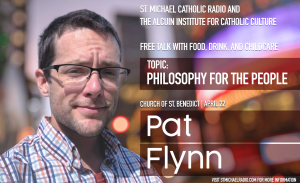Fr. Robert Barron on Woody Allen’s Bleak Vision
I was chagrined, but not entirely surprised, when I read Woody Allen’s recent ruminations on ultimate things. To state it bluntly, Woody could not be any bleaker in regard to the issue of meaning in the universe. We live, he said, in a godless and purposeless world. The earth came into existence through mere chance and one day it, along with every work of art and cultural accomplishment, will be incinerated. The universe as a whole will expand and cool until there is nothing left but the void. Every hundred years or so, he continued, a coterie of human beings will be “flushed away” and another will replace it until it is similarly eliminated. So why does he bother making films—roughly one every year? Well, he explained, in order to distract us from the awful truth about the meaninglessness of everything, we need diversions, and this is the service that artists provide. In some ways, low level entertainers are probably more socially useful than high-brow artistes, since the former manage to distract more people than the latter. After delivering himself of this sunny appraisal, he quipped, “I hope everyone has a nice afternoon!”Woody Allen’s perspective represents a limit-case of what philosopher Charles Taylor calls “the buffered self,” which is to say, an identity totally cut off from any connection to the transcendent. On this reading, this world is all we’ve got, and any window to another more permanent mode of existence remains tightly shut. Prior to the modern period, Taylor observes, the contrary idea of the “porous self” was in the ascendency. This means a self that is, in various ways and under various circumstances, open to a dimension of existence that goes beyond ordinary experience. If you consult the philosophers of antiquity and the Middle Ages, you would

